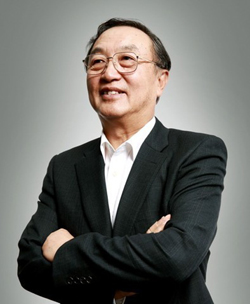Lenovo founder eyes new business: agriculture


The company's entry into agriculture could be the most remarkable one: Chen Shaopeng, the newly appointed senior vice president of Legend Holdings, will lead a new core business line: modern agriculture.
Chen's exit from Lenovo as president of the group's emerging markets last month to join Legend Holdings has drawn much media attention.
Chen, who Joined Lenovo in 1993, is widely known for his rare talent in sales. He set a sales record by bringing Lenovo a 585% year-on-year sales growth. During his dual roles as Lenovo Group's vice president and its president of Greater China & Russia Operation, Chen had claimed 40% of the group's overall sales revenue and more than half of the overall profits. Even in the second quarter of 2008, when the Lenovo founder Liu Chuanzhi was forced to return to leadership as the company's PC sales hit the lowest, Chen managed to make a profit of $108 million out of his business in greater China.
To transfer such a tiger commander to lead Legend Holding's modern agriculture efforts is an apparent declaration of the company's ardent and aggressive pursuit in the agricultural arena. And that deserves considering how big the "cake" could be.
According to official figures, as of August 31, the revenue and net profit of 54 listed agricultural companies in 2011 stood, respectively, at ?67.12 billion ($10.57 billion) and ?2.95 billion ($465 million), increased respectively by 28.9% and 49.6% from last year.
On separate occasions, Li Chuanzhi has said "By 2014, the profits for Legend Holdings will come mainly from two sources, low price-to-earnings ratio and high price-to-earnings ratio. The low price-to-earnings ratio part includes listed Lenovo, Digital China and fund management companies; while in high price-to-earnings ratio part, though Legend Capital and Raycom Real Estate boast a yearly profit growth of over 30%, the traditional businesses alone will not meet the targets. Modern service, coal chemical sectors and modern agriculture will be the main firepower of the listed companies in the future."
Agriculture belongs to the high price-to-earnings ratio in Legend Holdings.
But it is not the only company to explore the agricultural sector. According to statistics released by Qingke group, a Chinese risk-based investment research institution, from 2006 to the June 2011, China had 114 investment cases in agriculture. The unveiled sum involved in 104 of the cases stood at $1.76 billion. The year 2010 accounted for the largest investment sum, with 47 cases unveiled totaling $891 million.
Liu Ka, top manager with China Sunshine Insurance Group Corporation Ltd., told reporters "It's a great chance for Legend Holdings in stepping into agricultural sector;there are boundless business opportunities there."
But there are rivals and risks.
Legend Holdings is not the only Chinese company with a IT background to step into agriculture. Ding Lei, CEO of China's top-rated web portal NetEase, has put money into pig-rearing; while Liu Qiangdong, CEO of China's leading B2C e-commerce company Jingdong Mall, announced that he has invested in growing rice to sell online.
The reason that many IT companies are advancing into agriculture is that food safety has become a hot issue in China. Contaminated dairy products in the past years have triggered an uproar over food safety concerns. And IT companies hope that, with their brand advantages and sophisticated supply chain management, they can be competitive in the agricultural field.
But take Legend Holdings as an example: It recently purchased mostly traditional companies such as those engaged in livestock rearing, aquaculture and fruit cultivation. How to use information technology to transform those traditional businesses has proven extremely difficult for the group. Moreover, the current situation in China has ruled out the possibility of vast developing modern agriculture.
"Generally speaking, a tentative period is lingering on for IT companies that have set their feet on agriculture; there is a lack in profit-making models, and no shift of business focuses in sight," according to Lai Yang, Beijing Business Association Secretary-General.
Ma Chuang, Vice Secretary General of China Animal Agriculture Association, did not see it positively either. "It's extremely difficult for NetEase to make profits from raising pig through its current models," he said. "There is no fortune to make in such an undertaking. "
But tech firms are optimistic. As Ding Lei said, NetEase will surely make money through pig-rearing.
"We have started from fruit and gradually picked up meat and cereals, and finally it will be grain; that's an overall investment in food industry, " Liu Chuanzhi said. He acknowledged, however, that the food industry is a highly dangerous business, with safety problems in every link -- from producing, transporting, preserving to selling of the products.
But Li also affirmed that Legend Holdings was determined to develop modern agriculture. "We would do modern agriculture as a industry, we do not depend largely on agriculture to contribute to overall profit in 2014, we do not demand immediate returns from modern agriculture." Liu told reporters.